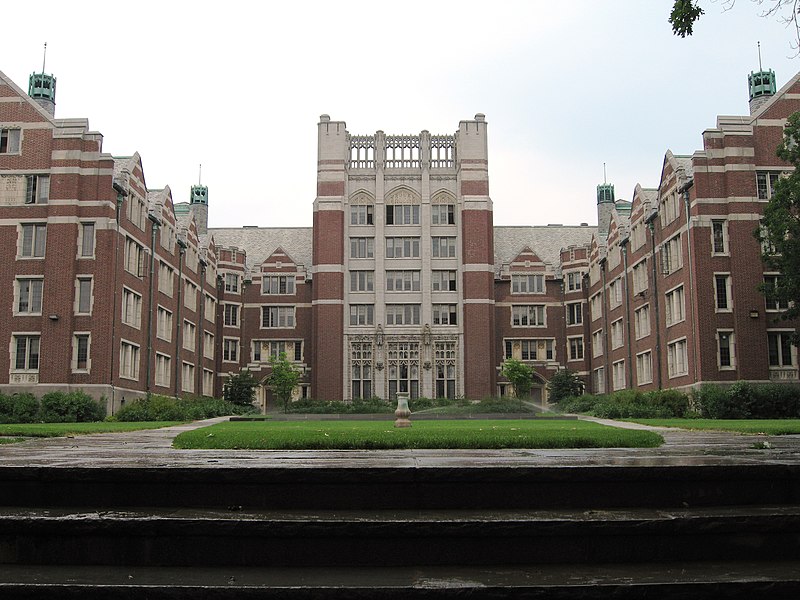The Wellesley College acceptance rate is a key indicator of how competitive this prestigious liberal arts institution is, making it essential for applicants to understand the latest admission statistics, requirements, and expectations. This guide provides an updated overview of acceptance trends, GPA and test score ranges, application components, deadlines, and tips to help you strengthen your profile. Whether you’re applying soon or preparing for a future cycle, this comprehensive breakdown will give you a clearer understanding of what Wellesley looks for and how you can improve your chances.
Wellesley College Historical Acceptance Rate
To better understand the journey to becoming part of this esteemed institution, it’s essential to explore the Wellesley College acceptance rate and how it has changed over recent years. These trends offer valuable insight into how the admissions landscape is shifting and what prospective students should keep in mind as they apply.
Wellesley College is renowned for its academic excellence, leadership focus, and supportive campus environment, which contribute to its highly selective admissions process. In recent years, the college has continued to tighten its acceptance rate. For the Class of 2029, Wellesley admitted approximately 13.7% of applicants, with about 1,191 students accepted out of roughly 8,700 applications. This continued decline from previous years reflects growing applicant interest and Wellesley’s consistently rigorous standards.
Below, you’ll find an updated table outlining Wellesley College’s acceptance rates for the past 6 years, offering a clearer view of how competitiveness has evolved.
| Entry Year | Class of | Acceptance Rate | Number of Applicants |
|---|---|---|---|
| 2025 | 2029 | 13.7% | 8,700 |
| 2024 | 2028 | 13% | 8,900 |
| 2023 | 2027 | 13% | 8,400 |
| 2022 | 2026 | 13% | 8,700 |
| 2021 | 2025 | 16% | 7,920 |
| 2020 | 2024 | 19% | 6,627 |
Wellesley vs. Other Liberal Arts Colleges Acceptance Rate
To better understand the Wellesley College acceptance rate in context, it’s helpful to compare the institution with other top liberal arts colleges that attract similarly high-achieving applicants. These colleges share strong academic reputations and highly selective admissions processes, making them useful benchmarks for students evaluating their options. The comparison below highlights where Wellesley stands within this competitive group and offers valuable insight into the level of selectivity applicants can expect.
| College | Acceptance Rate | Ranking Strengths | Notable Characteristics |
|---|---|---|---|
| Wellesley College | 13.7% | Social sciences, humanities, global leadership | Premier women’s college with strong alumnae network |
| Amherst College | 7% | Economics, mathematics, research | One of the most selective LACs in the U.S. |
| Williams College | 8% | Arts, sciences, undergraduate research | Frequently ranked #1 Liberal Arts College |
| Swarthmore College | 8% | Engineering, social sciences, critical inquiry | Known for rigorous academics |
| Barnard College | 11% | Arts, humanities, social sciences | Women’s college with access to Columbia University |
Factors Affecting Wellesley College Admissions
With the admissions process outlined, the next step is understanding the factors that significantly influence Wellesley College’s admissions decisions. This knowledge can empower applicants to craft a stronger application.
Several factors influence Wellesley College’s admission rate:
- Academic Achievement: Wellesley upholds high academic standards, so a strong GPA and participation in challenging courses make applicants more competitive.
- Personal Essays: The personal essay is an opportunity to highlight experiences, aspirations, and personality, showing why you would be a good fit for Wellesley.
- Letters of Recommendation: Recommendations from teachers, mentors, or community leaders provide a comprehensive view of your abilities and character.
- Extracurricular Participation: Active participation in extracurriculars, community service, and leadership roles strengthens your application, as Wellesley values well-rounded individuals.
- Demonstrated Interest: Genuine interest in the college can be shown through campus visits, research, and interviews, signaling commitment to joining the Wellesley community.
For your convenience, please refer to the table below.
| The Admissions Factor | Importance Level |
|---|---|
| Academic GPA | Very Important |
| Character/Personal Qualities | Very Important |
| Rigor of Secondary School Record | Very Important |
| Recommendation(s) | Very Important |
| Extracurricular Activities | Important |
| Application Essay | Important |
| Talent/Ability | Important |
| Class Rank | Important |
| College Prep Courses | Considered but not essential |
| SAT/ACT | Considered but not essential |
| Alumni/ae Relations | Considered but not essential |
| Standardized Test Scores | Considered but not essential |
| Volunteer Work | Considered but not essential |
| Geographical Residence | Considered but not essential |
| State Residency | Considered but not essential |
| Racial/Ethnic Status | Considered but not essential |
| First Generation | Considered but not essential |
| Level of Applicant’s Interest | Considered but not essential |
| Work Experience | Considered but not essential |
Wellesley Admissions Application Requirements
After considering the key factors that affect admissions, it’s important to understand the Wellesley College acceptance rate in relation to the application requirements. Meeting these criteria helps applicants present their strongest case and improve their chances of being admitted.
To apply to Wellesley College, all applicants must provide the following items. Below is the application checklist:
First-year Applicants
| Application requirements | Required | Details |
|---|---|---|
| The Application | – | Wellesley College will accept the Common Application, Coalition Application, and QuestBridge Application. |
| Transcript(s) of School Report | – | Transcripts should be submitted by school counselors through the Common Application or Coalition Application. It is also recommended to include a copy of your school’s profile with the School Report. |
| Essay | 2 | 1. Personal essay (250-650 words). 2. Wellesley-specific essay. |
| Letters of Recommendation | 2 | Letters of recommendation from teachers. |
| Arts, Theatre, or Music Portfolio | Optional | – |
| Athletic Support | Optional | – |
| Standardized Test Score | Optional | – |
International Applicants
| Application requirements | Required | Details |
|---|---|---|
| The Application | – | Wellesley College will accept the Common Application, Coalition Application, and QuestBridge Application. |
| Official Transcripts | – | The transcripts should be provided in both original language and translated version. The counselor needs to complete and submit the transcripts. |
| Essay | 2 | 1. Personal essay (250-650 words). 2. Wellesley-specific essay. |
| Letters of Recommendation | 2 | Letters of recommendation from academic instructors. One of the recommendations should evaluate your skills in reading, writing, and speaking English. |
| Financial Aid Intent Form | – | – |
| Arts, Theatre, or Music Portfolio | Optional | – |
| Athletic Support | Optional | – |
| Standardized Test Score | Optional | – |
| English-language proficiency exams | Optional | Wellesley recommends that applicants complete one of the following English proficiency tests or interview assessments: 1. Duolingo English Test 2. IELTS 3. TOEFL (Essentials or iBT) 4. Initial View 5. Vericant (Standard interview that includes a writing sample) 6. Cambridge Assessment English Qualifications (C1 Business Higher, C1 Advanced, C2 Proficiency are accepted) 7. GTEC CBT |
Undocumented or DACA Applicants
| Application requirements | Required | Details |
|---|---|---|
| The Application | – | Wellesley College will accept the Common Application, Coalition Application, and QuestBridge Application. |
| Official Transcripts | – | Transcripts should be submitted by school counselors through the Common Application or Coalition Application. It is also recommended to include a copy of your school’s profile with the School Report. |
| Essay | 2 | 1. Personal essay (250-650 words). 2. Wellesley-specific essay. |
| Letters of Recommendation | 2 | Letters of recommendation from academic instructors. One of the recommendations should evaluate your skills in reading, writing, and speaking English. |
| Financial Aid Intent Form | – | – |
| Standardized Test Score | Optional | – |
| Arts, Theatre, or Music Portfolio | Optional | – |
| Athletic Support | Optional | – |
QuestBridge applicants
| Application requirements | Required | Details |
|---|---|---|
| Official Transcripts | – | Transcripts should be submitted by school counselors. |
| Standardized Test Score | Optional | – |
| CSS Profile (College Scholarship Service Profile) | – | If your parents are divorced or separated: ●Your non-custodial parent is required to submit the CSS Profile online. ●Tax returns and income documents should be provided through IDOC. ●If you do not have contact with your non-custodial parent, you can request a waiver for their financial information by submitting the Non-Custodial Parent Waiver Petition. |
| Arts, Theatre, or Music Portfolio | Optional | – |
| Wellesley College Verification Worksheet | – | Submit the Wellesley College Verification Worksheet through IDOC. |
| FAFSA (Free Application for Federal Student Aid) | – | – |
Transfer and Davis Degree Program Applicants
| Application requirements | Required | Details |
|---|---|---|
| The Application | – | Wellesley College accepted the Common Application for transfer. |
| High School Transcripts | – | Only official final high school transcripts, no need for School Report. |
| College Transcripts | – | Transcripts must be sent directly from the college, as student or online copies are not accepted. |
| Essay | 2 | 1. Personal essay (250-650 words). 2. Wellesley-specific essay. |
| College Report | – | Submit a College Report that has been completed by your academic advisor or dean. |
| Midterm Report | – | – |
| Course Catalog Descriptions | – | Provide individual course descriptions from the course catalog for both completed courses and those you are currently enrolled in. |
| College Instructor Recommendations | 2 | – |
| Arts, Theatre, or Music Portfolio | Optional | – |
| Athletic Support | Optional | – |
| Standardized Test Score | Optional | – |
Wellesley College Application Timeline
With the application requirements now clear, it’s crucial to be aware of the Wellesley admissions timeline for submitting these materials. Understanding the key dates and deadlines for Wellesley College’s application process helps applicants stay organized and ensures timely submission.
| Regular Decision | Early Decision I | Early Decision II | Transfer and Dvis Degree Program | |
|---|---|---|---|---|
| Application | January 8 | November 1 | January 1 | March 1 |
| Quarter Grades | N/A | November 15 | January 9 | – |
| Final Transcript | July 8 | July 8 | July 8 | June 14 |
| Reply/Deposit | May 1 | Early January | Late February | June 3 |
| Mid-Year Grades | February 10 | February 26 | February 26 | – |
| Financial Aid | January 15 | November 1 | January 1 | April 1 |
| Notification | Late March | Mid-December | Mid-February | Early May |
| Supporting Materials | – | – | – | Within a week of the due date |
| Self-Reported Mid-Term Grades | – | – | – | March 25 |
Financial Aid and Scholarships at Wellesley College
Once you’ve reviewed the application timeline and understood the Wellesley College acceptance rate, it’s essential to shift your focus to another important aspect of the admissions process: financial aid and scholarships. Understanding the financial support available can help students better manage their educational expenses at Wellesley.
Wellesley College provides comprehensive financial aid that covers 100% of demonstrated financial need for admitted students. The average annual grant or scholarship is approximately $62,500. With a financial assistance budget exceeding $83 million, Wellesley is committed to making its education affordable for all admitted students.
Let’s take a look at some of the financial aid offered by Wellesley College:
Scholarships
At Wellesley College, scholarships referred to as grants, are a form of financial aid that does not need to be repaid. Currently, the total amount allocated for grants is around $66.1 million, which is exclusively for students demonstrating financial need. By 2024, approximately 60% of students are expected to receive financial aid, with an average annual grant of nearly $62,500.
As part of your financial aid package at Wellesley College, you may receive one or more of the following grants:
- Wellesley College Grant
- Federal Pell Grant
- Students’ Aid Society Grant
- State Grant
- Federal Supplemental Educational Opportunity Grant (SEOG)
These grants are designed to support students demonstrating financial need, ensuring that a Wellesley education remains accessible to all.

Federal Work Study
The Federal Work-Study (FWS) program allows students to gain work experience while attending college. At Wellesley College, students with work-study offers receive priority for on-campus jobs during the first few weeks of the semester. After this period, casual wage students may also have access to available positions.
Typically, students work about 6 to 8 hours per week at a rate of approximately $15 per hour, which aligns with Massachusetts’ minimum wage.
Loans
Students have the option to apply for loans in their name, which must be repaid after graduation. Wellesley College is dedicated to keeping loan amounts low to ensure that financial concerns do not restrict students’ choices upon graduation. Typically, students have 10 years to repay their loans through manageable monthly payments.
Here are the types of loans available for students to apply for:
- Wellesley Plitt-Kirgan Student Loan
- Wellesley College Students’ Aid Society Loan
- Wellesley College Student Loan
- Federal Direct Loan (both Subsidized and Unsubsidized)
How to Improve Possibility of Wellesley Acceptance Rate?
Having reviewed financial aid and scholarship options, let’s now explore ways to enhance your chances of Wellesley acceptance. These strategies can help prospective students create a more compelling application that resonates with the admissions committee.
Here are some strategies to enhance your chances of being accepted as a student at Wellesley College:
- Write an Engaging Personal Essay: Craft a personal essay that highlights the unique aspects of your experiences, goals, and identity.
- Emphasize Academic Achievement: Focus on your academic performance, especially in advanced courses, as this can enhance your application.
- Show Genuine Interest: Tailor your application to demonstrate your authentic connection to Wellesley College. Participate in virtual tours, information sessions, and interviews to gain a deeper understanding of the institution.
- Highlight Leadership and Impact: Get involved in extracurricular activities that align with your interests, showcasing your leadership skills and the impact you’ve made.
- Build Strong Relationships: Foster positive relationships with your teachers and request letters of recommendation that speak to your achievements, character, and potential.
In addition to these strategies, it’s important to start planning for your transition to campus life. Consider exploring student accommodations near Wellesley College through uhomes.com, which can help you find a comfortable living situation that supports your academic journey.
Conclusion
To sum up, navigating the admissions process at Wellesley College requires a comprehensive understanding of the Wellesley College acceptance rate, application requirements, and key factors influencing admission decisions. Prospective students should be mindful of important deadlines and take advantage of the financial aid and scholarship opportunities available to make their education more affordable. Additionally, by implementing targeted strategies to strengthen their applications, candidates can significantly enhance their chances of acceptance.
FAQs about Wellesley Acceptance Rate
What kind of students does Wellesley look for?
The admissions committee at Wellesley College specifically looks for strong writing and quantitative skills in applicants, viewing these abilities as essential predictors of success in the college’s curriculum.
Do I need to provide a test score to Wellesley College?
Submitting test scores is optional. If your scores are higher than average, you might want to include them in your application.
What GPA do I need to get into Wellesley?
A 4.09 or higher GPA will increase the possibility of getting your spot in Wellesley College. The GPA requirements of different programs may vary from 2.5 to 4.0. Based on the Wellesley University acceptance rate of 14%, you’d better get higher GPAs or SAT/ACT scores to be more competitive in the application process.
How famous is Wellesley College?
Wellesley College is widely recognized as the top women’s college in the world and is ranked #7 among 211 National Liberal Arts Colleges.
Is it hard to get into Wellesley College?
It is hard to get into Wellesley College according to the acceptance rate of 14%, meaning that only 14 out of 100 applicants get admitted. So, you will need to work hard on your academic achievement and make your application resonate with the
What is the current Wellesley College acceptance rate and how has it changed recently?
For the Class of 2029, Wellesley admitted about 1,191 students out of roughly 8,700 applicants — resulting in a 13.7% acceptance rate. For the Class of 2029, Wellesley admitted about 1,191 students out of roughly 8,700 applicants — resulting in a 13.7% acceptance rate.
Does submitting SAT or ACT scores improve my chances, even though Wellesley is test‑optional?
Yes, while Wellesley is officially test‑optional, many admitted students still submit test scores. Strong SAT or ACT scores (e.g. , SAT ~1470–1550, ACT ~33–35) can strengthen an application, especially when combined with a solid GPA, essays, and extracurriculars. The admissions committee reviews each applicant holistically, so high test scores are considered as part of the broader profile but are not strictly required.
What is the regular application deadline for Wellesley College, and when are decisions typically released?
The regular decision application deadline for Wellesley is January 8. Early‑decision/early‑action applications are due November 1. Admissions decisions for regular decision applicants generally come out in mid‑March.







